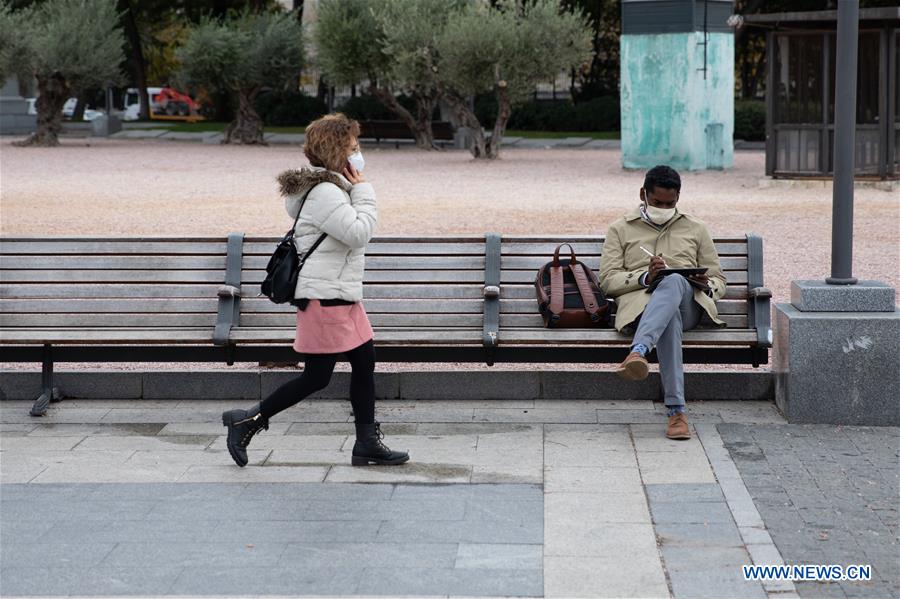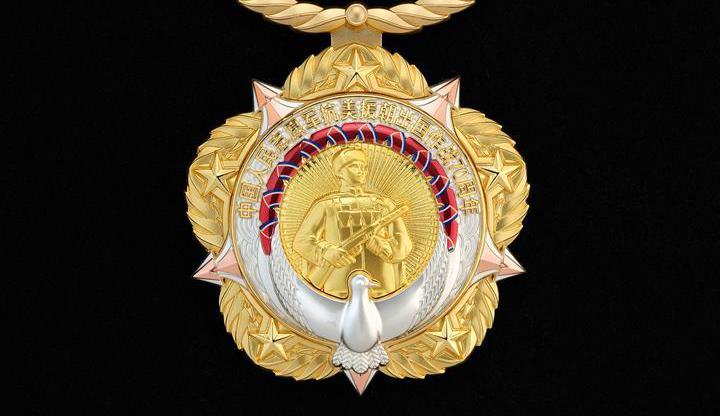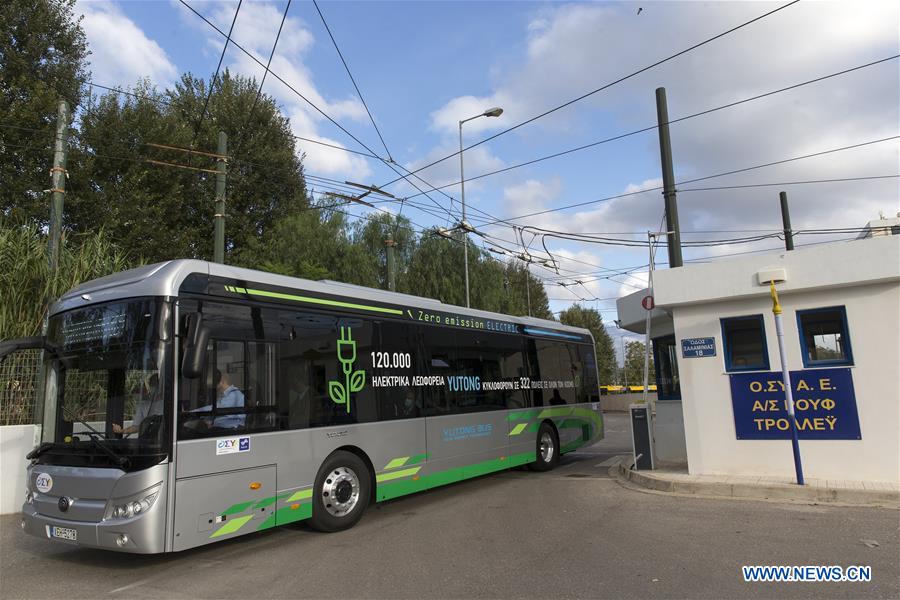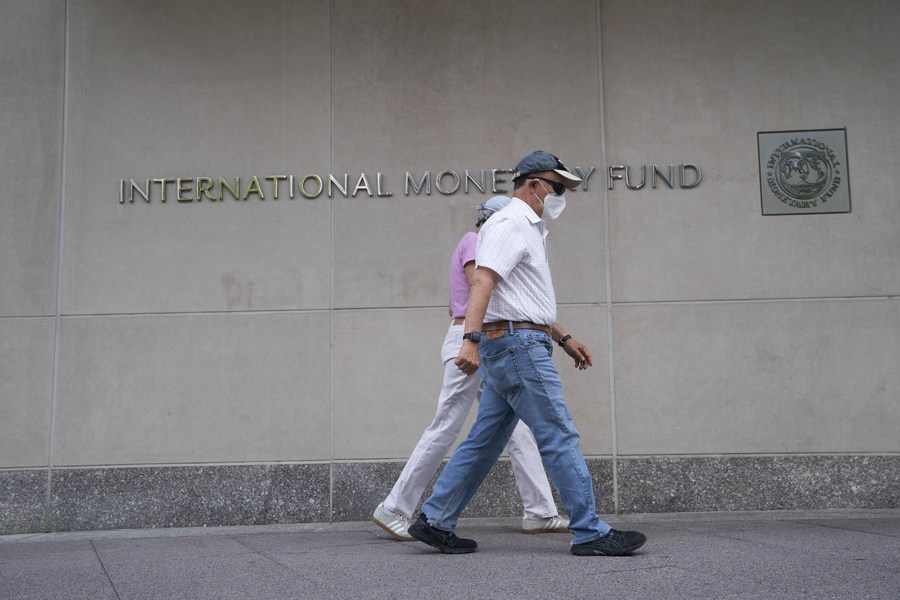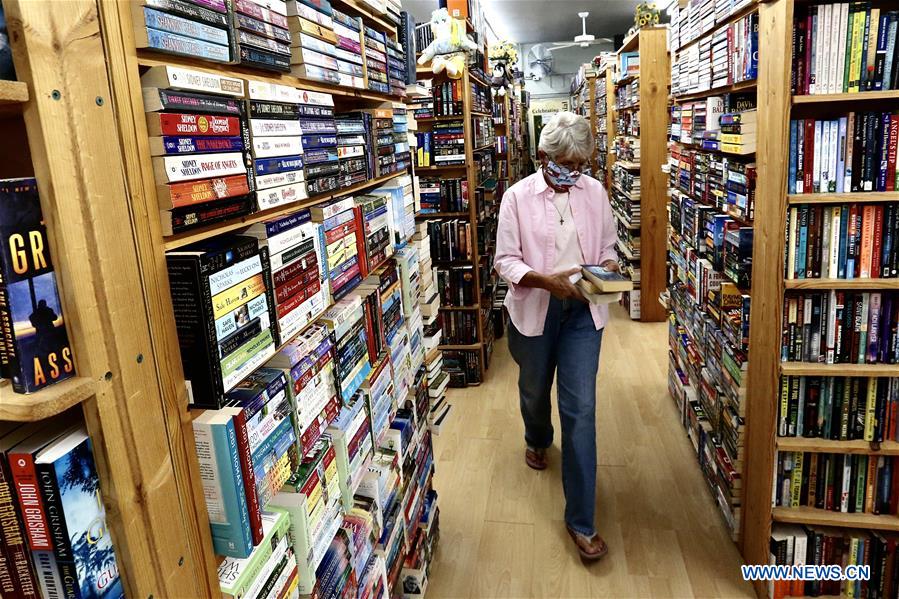
Karen Kropp, owner of The Book Rack bookshop in Arcadia, works at the bookshop in Los Angeles County, the United States, on Oct. 13, 2020. "To be or not to be ..." that's the question that many independent bookstore owners are confronting as they become yet another casualty of the COVID-19 pandemic. Independent bookstores and bookstore chains have been taking a beating as consumer buying habits shifted to online purchases and away from the relaxed, in-person browsing they'd previously enjoyed. Now, fighting to survive, independent bookstore owners are really showing their mettle as they come up with innovative ways to serve their loyal customers and reach out to new ones. (Xinhua)
by Julia Pierrepont III, Gao Shan
LOS ANGELES, Oct. 22 -- "One dollar a pound," read a notice on the shop windows of a bookstore at Ord street, Los Angeles, noting that "tens of thousands of books needed to be cleaned up, and all books are sold at the same price."
The New Great Wall Books & Culture, one of the few bookstores in LA's Chinatown, now owned by Yu Yupeng, an immigrant from Guangdong, China, finds itself forced to shutter the bookstore forever after 25 years in business.
"My business was rather depressed even before the pandemic as independent bookstores are facing increasing competition from e-commerce. And coronavirus has made matters worse," Yu told Xinhua, adding that his bookstore was temporarily closed several months after the outbreak of the pandemic due to COVID-19 protocols.
"I hope to sell all books as soon as possible. I have to pay rent, utility fees and support my family," he lamented to Xinhua.
"To be or not to be ..." that's the question that many independent bookstore owners are confronting as they become yet another casualty of the pandemic.
Independent bookstores and bookstore chains have been taking a beating as consumer buying habits shifted to online purchases and away from the relaxed, in-person browsing they'd previously enjoyed. Amazon now accounts for the majority of all books sold in the United States.
But in recent years, neighborhood bookstores had been making something of a comeback as popular community venues for romantic poetry readings on date night, glamorous "Meet the Author" cocktail soirees, afternoon children's hour, or just a leisurely day of thumbing through the latest New York Times bestseller or discovering an obscure or out-of-print work that opens a unique window on a bygone era.
"Bookstores are the center of the community," Bert Deixler, co-owner of popular Chevalier's Books in Larchmont village in Los Angeles told Xinhua. "We don't want to be an Amazon that just clicks through with no contact. We like people to come, talk to each other, meet famous authors, and enjoy some wine and cheese together."
Founded in 1940, the bookstore claims the title of oldest independent bookstore in LA.
But, as of March 15, like many other "non-essential" businesses, booksellers all across California had to shutter their doors when COVID-19 struck, robbing their clientele of the friendly, in-person community hub they love.
Bloomberg has reported that during the early stages of the outbreak, the non-profit Book Industry Charitable Foundation, which provides assistance to independent booksellers, was swamped with requests from over 670 stores seeking emergency financial aid to stay afloat.
Now, fighting to survive, independent bookstore owners are really showing their mettle as they come up with innovative ways to serve their loyal customers and reach out to new ones.
Forced out by their landlord to make way for a big national chain instead, Larchmont's beloved Chevalier's Books was facing extinction. They found another place, but the rent was very high - more than double their previous rent - and they knew they couldn't do it alone.
"We put a note out to our community email list of 3000 or 4000 people and said we can only do this if you support us. We didn't know what to expect. But people were lined up to buy books and gift certificates and many others have been buying online too to support us," Deixler said.
One of their clients bought a 10,000 dollar gift certificate and gave it to a mission downtown. Another client bought 40 memberships for his friends and family at 25 dollars a pop, while famous authors are rolling up their sleeves and volunteering to schlep books across the street to their new site.
"How lucky can we be to be surrounded by people who really care," Deixler mused gratefully.
"Unless things change soon, America is in danger of losing a literary cultural heritage that has been held in trust by independent booksellers for generations," warned Deixler.
Karen Kropp, owner of The Book Rack bookshop in Arcadia has also had a lot of support from her loyal customers and, though still selling online, has reopened for small numbers of visitors at a time. The bookstore has been in Arcadia for over 25 years, according to its website.
"We are still here. Every day is a new day and we must count each day as a blessing," she told Xinhua.
But sadly, many other booksellers are not going to make it. Around 20 percent of independent bookstores across the country are in danger of closing today, the American Booksellers Association said in a statement last week.
"People may not realize the cost and consequences of 'convenience' shopping until it's too late. More than one indie bookstore a week has closed since the Covid-19 crisis began. At the same time, a report forecasts that Amazon will generate 10 billion dollars in revenue on October 13 and 14 during its Prime Day promotion," Allison K. Hill, the CEO of the American Booksellers Association, said in the statement.
"Closed indie bookstores represent the loss of local jobs and local tax dollars; the loss of community centers; and the loss of opportunities for readers to discover books and connect with other readers in a meaningful face-to-face way," Hill noted.
One of the New Great Wall's customer, Lawrence Lao, told Xinhua, "It's inevitable that e-books are more and more popular, especially for the younger generation in an era when technology is developing rapidly. No matter - print books or e-books are both conveyers of culture."
But he said, for him, "coming to a bookstore and buy print books is more of a cultural preference now."

